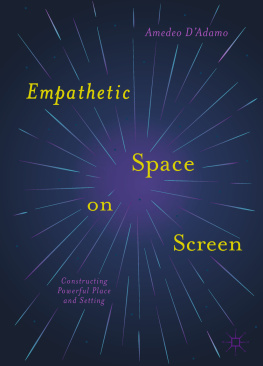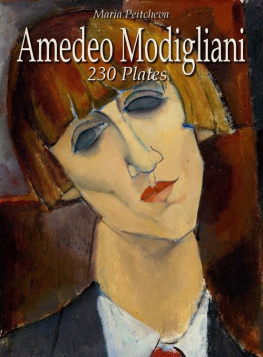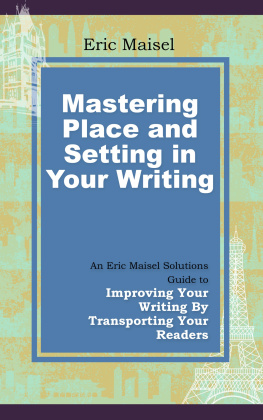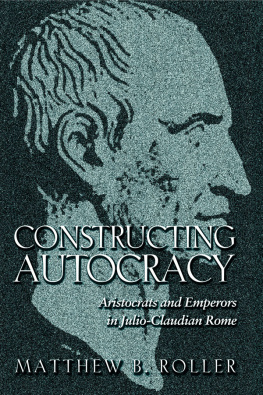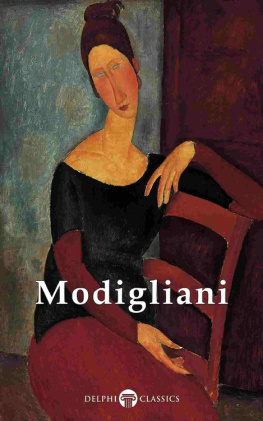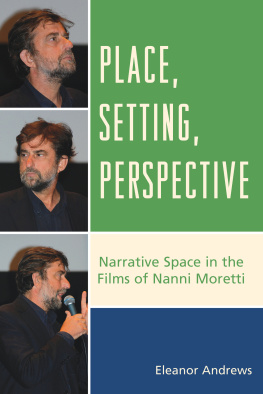Amedeo D’Adamo - Empathetic Space on Screen: Constructing Powerful Place and Setting
Here you can read online Amedeo D’Adamo - Empathetic Space on Screen: Constructing Powerful Place and Setting full text of the book (entire story) in english for free. Download pdf and epub, get meaning, cover and reviews about this ebook. publisher: Springer International Publishing, genre: Children. Description of the work, (preface) as well as reviews are available. Best literature library LitArk.com created for fans of good reading and offers a wide selection of genres:
Romance novel
Science fiction
Adventure
Detective
Science
History
Home and family
Prose
Art
Politics
Computer
Non-fiction
Religion
Business
Children
Humor
Choose a favorite category and find really read worthwhile books. Enjoy immersion in the world of imagination, feel the emotions of the characters or learn something new for yourself, make an fascinating discovery.
- Book:Empathetic Space on Screen: Constructing Powerful Place and Setting
- Author:
- Publisher:Springer International Publishing
- Genre:
- Rating:5 / 5
- Favourites:Add to favourites
- Your mark:
- 100
- 1
- 2
- 3
- 4
- 5
Empathetic Space on Screen: Constructing Powerful Place and Setting: summary, description and annotation
We offer to read an annotation, description, summary or preface (depends on what the author of the book "Empathetic Space on Screen: Constructing Powerful Place and Setting" wrote himself). If you haven't found the necessary information about the book — write in the comments, we will try to find it.
Amedeo D’Adamo: author's other books
Who wrote Empathetic Space on Screen: Constructing Powerful Place and Setting? Find out the surname, the name of the author of the book and a list of all author's works by series.
Empathetic Space on Screen: Constructing Powerful Place and Setting — read online for free the complete book (whole text) full work
Below is the text of the book, divided by pages. System saving the place of the last page read, allows you to conveniently read the book "Empathetic Space on Screen: Constructing Powerful Place and Setting" online for free, without having to search again every time where you left off. Put a bookmark, and you can go to the page where you finished reading at any time.
Font size:
Interval:
Bookmark:
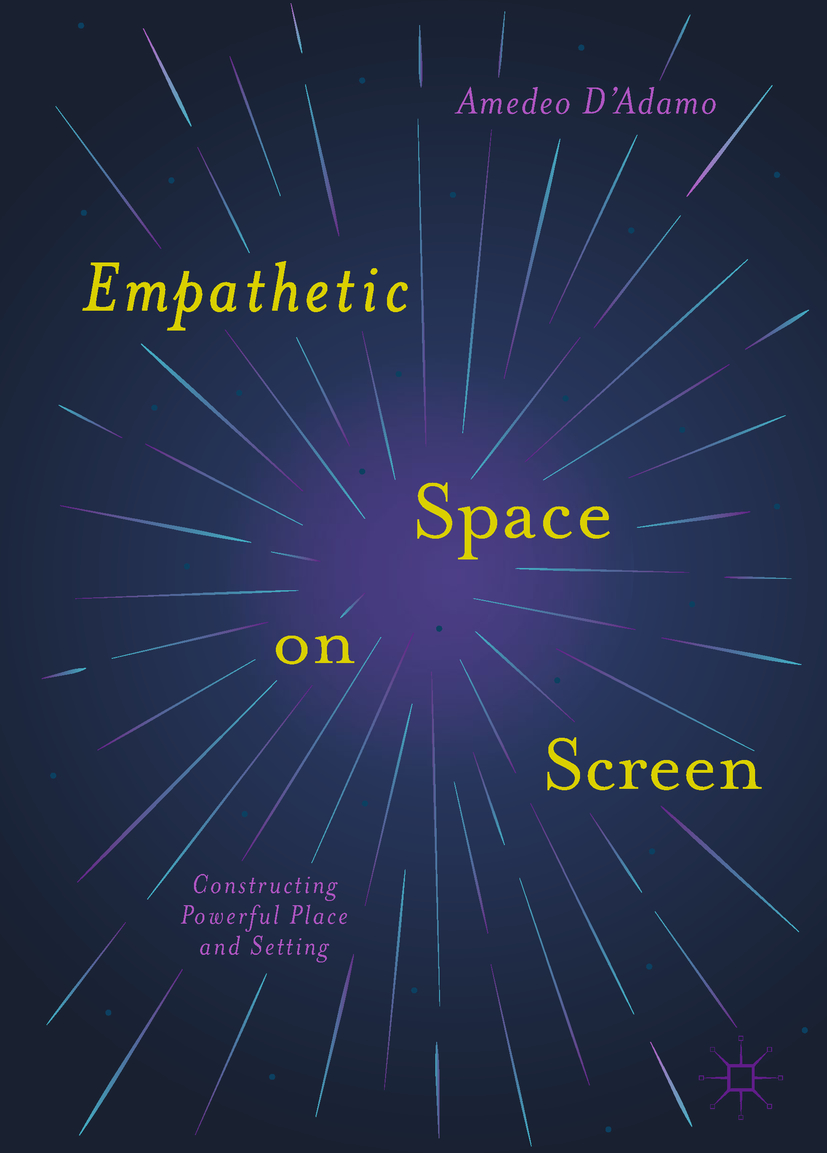

Cover design by Jenny Vong
This Palgrave Macmillan imprint is published by Springer Nature
The registered company is Springer International Publishing AG
The registered company address is: Gewerbestrasse 11, 6330 Cham, Switzerland
As Manzoni says, friendship does not pair us off into couples as marriage does; each of us generally has more than one friend, and so a chain is formed of which none can see the end. A long chain of friends have made this book happen. Im especially thankful to Nevina Satta, Anna Thomas, Andy Bienen, Salvatore Puledda, Gabrielle Kelly, Michael Silver and Jennifer Calder for their years and decades of conversations, encouragement and genuine friendship. Particular thanks to Lisa Perrott for her detailed suggestions and thoughts on this book. A huge molto grazie to Franca Marchi for the talks on Dante and for so much else: without her support this book would not exist. Effusive thanks to Francesco Casetti (for creating the teaching environs in Brescia, Lugano and Locarno where my wife and I have taught so happily for so long), to Max Locatelli, Elena Mosconi, Francesca Piredda, Marco Cucco, Gabriele Balbi, Giuseppe Richeri, and Ruggero Eugeni (for maintaining ideal pockets of teaching) and to Larry Paull, Barbara Boyle, Henry Bumstead, Dick Sylbert, Silvio Maselli, Daniele Basilio, Frank Patterson, Thom Mount, Carolyn Pfeiffer, Pat Olmstead, Mark Debacco and Paul and Diana Kessler for great days working together. To Liz Giuffre, JeanPierre Candelero, Anna Stucchi, Mauro Magatti, Chiara Giaccardi, Anna Caccia and Ian Dixon for their support, to Michael Collier for crafting three wonderful Breadloaf writer conferences, and to my students in Lugano, Locarno, Brescia, Apulia, Royal Holloway, China, Cameroon and Hollywood.
To the teachers I admire who taught with passion and insight: the marvelous Bernard Williams, the generous Joe Volpe, the rigorous Paul Shrader, and the patient and generous Dan Kleinman, Lewis Cole, John E. Hare and Brendan Ward. A special thanks to James Shamus who took a chance on an immature young student and let me intern and even briefly work for him so long ago at his great company Good Machine. To Lina Aboujieb at Palgrave Pivot, who saw promise in a short Pivot project proposal and for her patience and encouragement, and to Heloise Harding for all her focus and attention. It has been a marvelous experience working this first time with an editor and editorial assistant who really care about helping hapless academics and about producing real work. A grateful thanks also to the hardworking crew at Springer: molto grazie Vanessa Mitchell, Aishwarya Balachandar, Tabea Gueers and Prashanth Ravichandran for the many painstaking corrections. Particular thanks to Chiara Giaccardi for inviting me back in 2011 to speak about my concept of Dantean Space at a 2012 ECREA conference she helped organize at the Universit Cattolica.
As an effort to bridge film craft and cultural theory, this book owes much to the many highly-accomplished film craft folks who Ive been lucky to work with over the last twenty five years. A more concrete acknowledgement to them makes up this books Afterwards.
Finally, it seems important to acknowledge some of the great theorists whose lifework inspires us all. Im thinking here particularly of singular inspirational thinkers such as A.C. Bradley, Gaston Bachelard, Erich Auerbach, E.R. Dodds, and Svetlana Alpers. But most of all to Herbert Marcuse, T.J. Clarke, Carol Gilligan, Martha Nussbaum and those who work on a collective level from the Situationists to the Marxist collective Plan C. These are people who strive to create a knowledge that does not just enrich but that activates, a cultivation of the self where the self extends out beyond todays crippled confines. They embody a long tradition of intellectuals, artists, writers and filmmakers who have chopped vigorously into the alienation, cruelty and false social necessity that crushes down on us all like a great, terrible iceberg, flattening our capabilities and chilling our spirits. They realize with urgency that the task is not to understand our culture but to carve out new spaces of mutual care and richness.
There is a quiet moment in an episode of the sitcom Gilmore Girls . A character looks in a mirror and contemplates the 50-ish face looking back at her and says thoughtfully to herself, This is not what I really look like.
This is true in a specific sense: we see ourselves through a tunnel of memories and moments and not as the simple physical version that someone else might meet for the first time. In fact, we do not just see ourselves this way: we often see those we love and hate through the same kind of tunnel of time, as a kind of alchemical amalgam of past and present. Are we wrong? Deluded? Living in a dream? Is this a flaw or a strength?
Aristotle says that a true friend is a mirror of ones best self, but how is that mirror more true than the one hanging in the bathroom in Gilmore Girls ? Because the mirror of the self is informed by history, by experiences and their emotional truth.
I experience this true mirror every day in my marriage to my wife. In a real sense I wrote this book through that marriage and its particular intensely shared tunnel of time and memory. After all, she and I have taught together for fifteen years now on three continents, in the beating monsoon rains of Cameroon, on hot sound stages in Hollywood, and in universities and film festivals all over Europe. Threaded through all that is the turns we took producing and directing three tough low-budget films. Meanwhile weve lived through and tried to grasp so many intense social and emotional experiences and crises that it is now frankly impossible for me to say how much of the work on these pages is hers. But I do know her long experience in drama therapy, with the connection between life and drama, has fixed my attention for so long that this books fascinations are, like my life, impossible to imagine without her.
Font size:
Interval:
Bookmark:
Similar books «Empathetic Space on Screen: Constructing Powerful Place and Setting»
Look at similar books to Empathetic Space on Screen: Constructing Powerful Place and Setting. We have selected literature similar in name and meaning in the hope of providing readers with more options to find new, interesting, not yet read works.
Discussion, reviews of the book Empathetic Space on Screen: Constructing Powerful Place and Setting and just readers' own opinions. Leave your comments, write what you think about the work, its meaning or the main characters. Specify what exactly you liked and what you didn't like, and why you think so.

